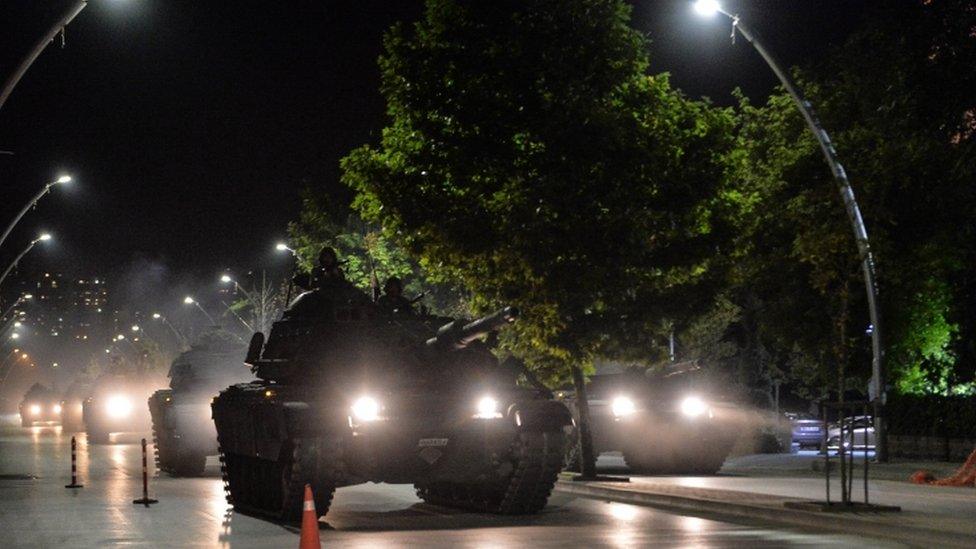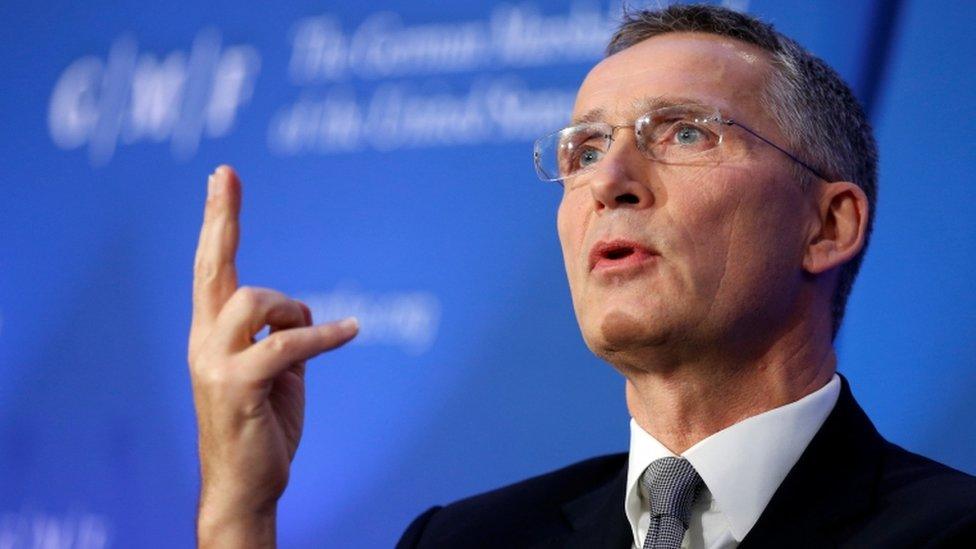Turkish Nato officers 'seek asylum' after failed coup
- Published

The Turkish coup convulsed society and led to a major purge
A number of Turkish officers posted to Nato have sought asylum since the country's failed military coup in July, Nato's secretary-general has said.
Jens Stoltenberg said the officers had requested asylum in the countries where they had been posted but gave no names, numbers or reasons for the requests.
The countries involved will consider the cases individually.
Turkey has dismissed, suspended, detained or arrested tens of thousands of people since the July coup attempt.
Many have been in the military, although others are teachers, policemen, judges and journalists.

Turkey's attempted coup


US and EU officials have expressed concern over Turkey's use of emergency laws, which have been in place since the failed coup and which allow the president and cabinet effectively to rule by decree.
More than 240 people, many of them civilians, died in the events of 15 July.
The Turkish government's crackdown has targeted those it suspects of links to the man it believes masterminded the coup attempt - the cleric, Fethullah Gulen.
He lives in self-imposed exile in Pennsylvania in the United States and has denied any involvement.
'Grim conclusions'
Mr Stoltenberg said on Friday: "Some Turkish officers working in the Nato command structure... have requested asylum in the countries where they are working."

Mr Stoltenberg said asylum cases would be dealt with individually by the countries involved
German media have carried reports that some members of the Turkish military have requested asylum in Germany.
Mr Stoltenberg, who is to visit Istanbul on Sunday, also said there had been "a number of changeovers in the Nato command structure where Turkish personnel has been changed", adding that he expected Turkey to "fill all its posts".
More than 110,000 people have been sacked or suspended from posts, mainly in the military, civil service, academia, media and judiciary, since the failed coup, with about 36,000 people jailed pending trial.
Germany's Office for Migration and Refugees said on Friday it had received 4,437 political asylum requests from Turkish citizens up to the end of October, compared to 1,767 for the whole of last year.
Also on Friday, the UN rapporteur on freedom of expression, David Kaye, warned of a "grim" climate in Turkey since the failed coup.
He said: "The conclusions I would say are fairly grim and reflect what I think is a deep sense of restriction on freedom of opinion and expression throughout the country."
Turkey denies it is using the failed coup as an excuse to remove opponents and insists that those without proven links to the attempt will be freed.